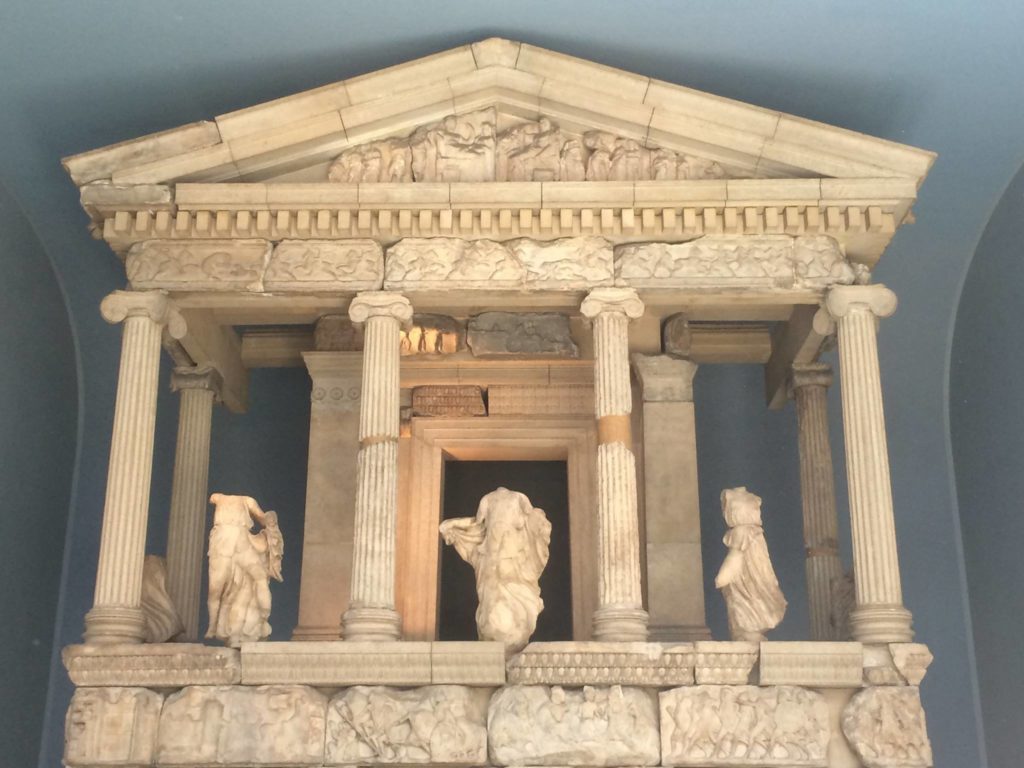Read The Christian Journey Part I: The Body of Christ

The Jungian Archetype
Carl Gustav Jung (1875 – 1961) was a Swiss student of the founder of modern psychoanalysis, Sigmund Freud, an outspoken atheist. He developed his own system of psychotherapy that rivalled Freud’s from its inception. Jung’s research on schizophrenia led him to the theory of the collective unconscious, which proposed that a part of the human mind contained common mythological elements called ‘archetypes.’ Archetypes are expressed in myths, dreams, visions, and hallucinations. They may be people, places or things.
Jung discovered that failing to manage a holistic lifestyle or find a happy medium between private interests and morality only makes a person cause harm to themselves and others. This is especially true for people in positions of power, such as CEOs, bankers and elected officials. One cannot live a balanced lifestyle when interpreting the scriptures literally. The reality is, people are going to act on lust (and some people are always going to be LGBT), we are going to accumulate wealth, and we are going to be engaged in military conflicts.
Christians are human beings, and as such, Christians need to be able to reconcile their faith with reality. The root of the disorder is the separation of the spiritual and the material and the misperception that there is an antagonistic relationship between these two opposing aspects of human nature.

To avoid this duality Jung, always a Christian, asserted the propriety of symbolic interpretation of Christian scripture over the literal. Jung believed that man might find immortality in the symbolic resurrection of Christ, true spiritual redemption, and not depend on the fact of it to foster belief in future bodily resurrection. Christians could have healthy, moderate holistic lifestyles without vainly attempting to deny the flesh, and without abandoning Christian traditions.
Jung suggested that the founders of major religions were archetypes of pure good, spirit or consciousness. With appeal to different people, Dao, the Sefirah “Tiferet,” Buddha, Jesus, and Mohamed represented the same thing. The popularity of the latter three was due to their historical reality, their human or personal nature. The opposites of good and evil, spirit and matter, consciousness and unconsciousness, or righteousness and sin, interact to form wholeness, which the human seeks. A person must accept and embrace both sides of his or her personality to be healthy.
The ultimate goal of psychotherapy, according to Jung, is human wholeness, the same goal as the alchemists who worked to unite the divine opposites. Jung called the unity of existence the Unus Mundus, and described it as simultaneously subjective and objective. Synchronicity was the phenomenon of archetypal events occurring both in nature and in the mind, at once. The pleroma was the totality of all things, possessing all qualities and thus possessing none. It was the balance of opposites, cosmic wholeness and nothingness.
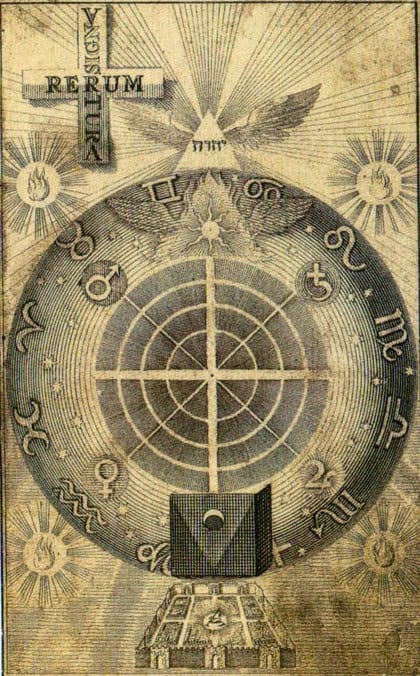
Governing Hearts and Minds
Jung asserted that history was a record of the spiritual devolution of man. The divine had once been imagined to be everywhere, in primitive polytheism, then contained within a single being in monotheism, and finally reduced to the realm of the psyche in science. The nature gods seemed to have perished at the rise of Christianity, when it was pronounced, “The Great God Pan is dead!” and Nietzsche articulated the feelings of his generation when he announced, “God is dead.”
Jesus preached an unattainable ideal. Many Christians today recognize this, accept sin as inevitable, and confess that no one is perfect except Jesus. Although Christianity is known for its martyrs, Christians have always struggled to live up to that ideal, especially when it contradicts the laws of survival. Often, material needs or desires win out over spiritual beliefs. The same communities of churchmen, royals and aristocrats that spent much time perpetuating ruthless wars and collecting great hoards of wealth carried the banner of Christianity. So far as public morality is concerned, religion has had mixed results, but this is the subject of a future blog article.
LINK UNDER CONSTRUCTION: “How We Know What Is Moral”
An obsessive medieval Christian Church divided man from nature and his unconscious mind by rejecting the world for the spirit; a mission doomed to failure. The pseudo-sciences of astrology and alchemy worked to maintain the connection between the physical world and the divine by looking for explanations of spiritual matters with observations of the cosmos and the earth. As science made a comeback in the sixteenth to eighteenth century philosophies of empiricism and materialism, the absolute morality of Christian belief was put into doubt, becoming understood as a subjective and cultural phenomenon.
In the nineteenth century unhealthy extremist materialism in the forms of individualism and laissez-faire or free market capitalism arose alongside the unhealthy Christian theology that completely denied the material world. Socialism developed as a middle way to address the problems of poverty, wealth inequality, and oppression. The Western Christian nations would all come to adopt a mixture of capitalist and socialist policies. Extreme socialism manifested as communism, which manifested as violent revolution and oppression, in its failed attempt to equalize society.

Growing with Judeo-Christian Heritage
On the one hand, Western society has largely remained faithful to its Judeo-Christian heritage, while on the other hand it has nurtured the violence of colonialism and the greed of pure capitalism. The world often requires practical solutions contrary to Biblical standards. History and experience are full of examples. Christian sexuality is a prime example, from extra-marital relations, to divorce rates, to the systemic child abuse of the Roman Catholic Church.
Christian wealth is another example of normalized hypocrisy rooted in unattainable Biblical standards. When Jesus advised selling all possessions and giving everything to the poor, most Christians have decided that this is just too extreme and irresponsible. We rationalize that Jesus must have just meant us to be charitable toward the poor. As evidence one need only consider the riches of the Vatican, the Orthodox Church, the Anglican Communion, and the Protestant megachurches with their popular “prosperity gospel.” We attempt to excuse this hypocrisy by noting that people are imperfect and often err: “the spirit is willing but the flesh is weak” (Matthew 26:41).
These justifications, however, cannot account for a lifetime of belief that is contrary to one’s actions. As Jesus put it in Matthew 6:24, “No man can serve two masters.” And yet, this is precisely what the majority of Christians attempt to do, knowingly or unknowingly. The solution is the ongoing battle between right and wrong, which we all fight, and which requires science, meditation and community. Science to identify and define, meditation to overcome, and community to lend support. There are some who struggle more than others. Take, for example, the recent exposure of the epidemic of pederasts in the Roman Catholic priesthood. The compulsive, the sex offender or the addict struggles against a part of himself that can never be overcome, and yet can never be incorporated into a healthy and moral lifestyle.
There is a misconception that science cannot help in the realm of morality. To the contrary, only science can inform about right and wrong, and it is dispelling myths all the time. The LGBT community no longer need closet themselves in guilt over the sin of perversion: science has proven that there is no sin in homosexuality, it is a normal, healthy genetic disposition. Yet, there are those who suffer from religious taboo within their society, and thus live a double life. There are many other reasons, of varying urgency, that cause a religious person to habitually behave in a way that contradicts their core beliefs, from noble causes like patriotic duty to shameful causes like self-indulgence.
Cognitive dissonance is stress caused by maintaining two contrary beliefs, such as Christian charity and capitalist greed, or Christian pacifism and taking up arms. People suffering from cognitive dissonance may go through mental gymnastics to try to rationalize their contradictory inner natures and deeply held opposing beliefs. Some find an escape from their psychological struggle or their personal responsibility by turning to the Christian principles in an attempt to excuse all unchristian behavior. They point out that everyone is a sinner, no one is perfect except Jesus, we must all forgive trespasses as our trespasses are forgiven.
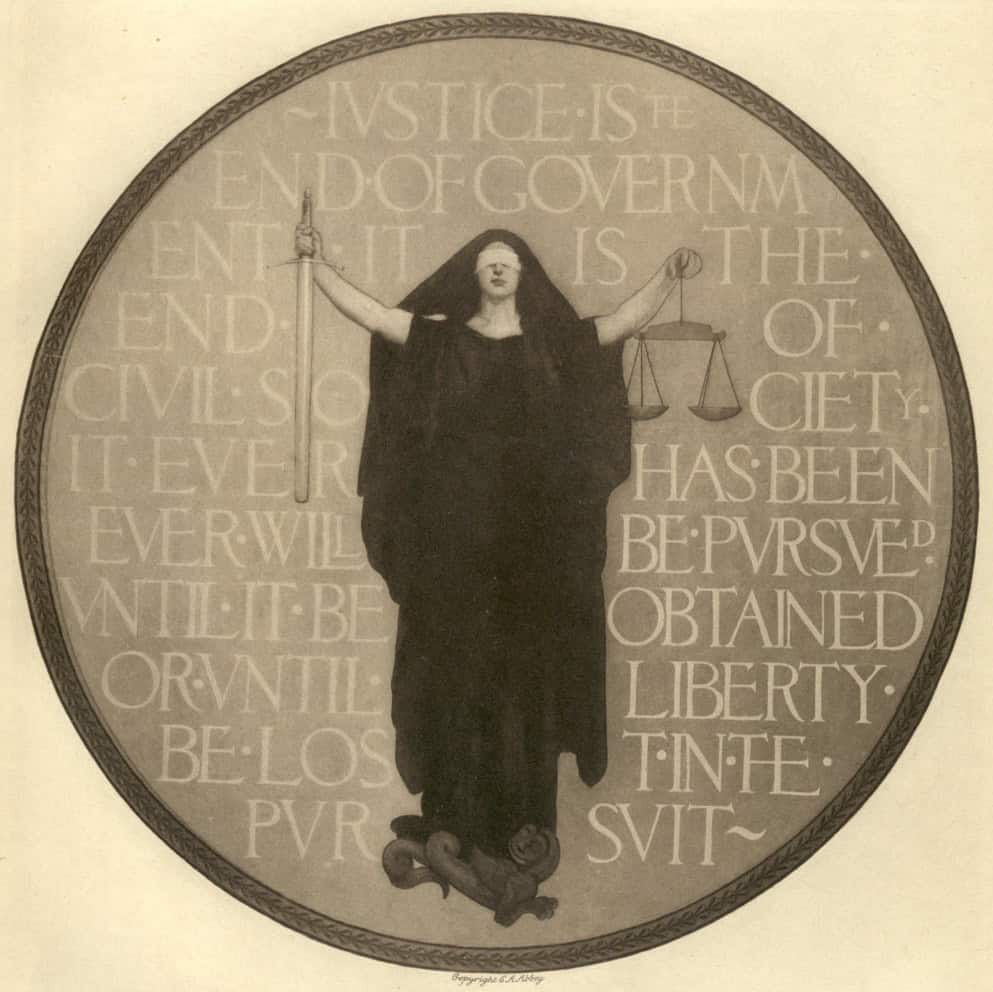
Deepening Our Understanding
Christians are instructed in Matthew 7:1 to “judge not, lest ye be judged,” and some use this statement to justify any behavior. It is clear, though, by the next four verses (Matthew 7:2-5) that Jesus made this statement to condemn hypocrisy. Jesus commanded his followers to act according to specific moral directives and to shun acts of sin, so his forgiveness is not in any way a license to sin freely. Jesus did not pardon all sin unconditionally. The doctrine of heaven and hell is proof of that. According to Jesus, those who sin freely will not be forgiven, but will be punished in the afterlife with eternal torture.
Christians have historically believed that non-Christians will go to Hell because they reject Jesus as Lord and savior. This is a very cultish and ignorant assertion. The way of Jesus is not the only way to be saved from evil. The current Pope, Pope Francis, recently made the controversial statement that an atheist might go to Heaven. When Jesus said, “I am the way, and the truth, and the life. No one comes to the Father except through me,” he must be interpreted as referring to the Law, the archetypal perfect person (which includes the Christ to come), not just to himself as incarnated as a man. The Law is expressed in nature, itself, and is only partially revealed in the various religions and systems of the world.
Indeed, flaws, mistakes and misdeeds should be forgiven, but a society must decide on realistic standards of morality as a basis for ethics and law, and people must be held to those standards. This has traditionally been best managed by secular humanism, the foundation for universal human rights. Our knowledge of right and wrong evolves over time as we learn through science and experience. Morality and ethics are subjects of study just like other branches of science, such as chemistry or physics. Such a holistic system minimizes hypocrisy and the cognitive dissonance that accompanies it allowing, instead, the majority of people to pursue health and happiness as nature intended.
LINK UNDER CONSTRUCTION
How We Know What is Moral
The Meaning of Scapegoat
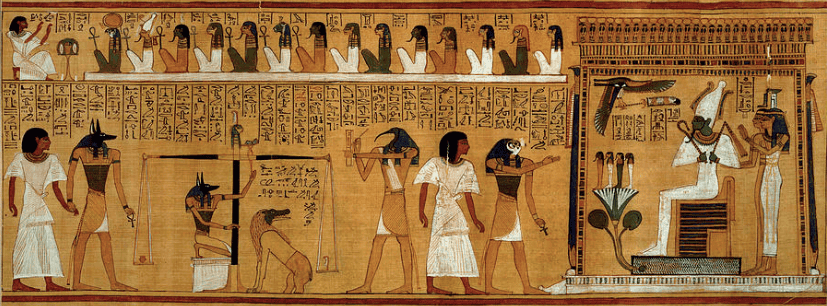
Heaven and Hell
Sometimes archetypes are places, which is demonstrated very clearly in the Christian archetypes of Heaven and Hell. There are three different meanings described by the word ‘Heaven.’ The first ‘Heaven’ in the Bible refers to the ‘spiritual’ or the underlying laws of the universe, in contrast to ‘Earth’ or actual physical universe. The second ‘Heaven’ refers to the whole universe; the ‘heavens’. The third ‘Heaven’ is the experience of perfection, or the ultimate good, which is the place of God.
Heaven and Hell represent the spiritual consequences of virtue versus vice. A central lesson of ethics is on the use of volition, also known as ‘intention’; ‘will’; and ‘freewill.’ Each observer must make a conscious choice to follow the precepts of truth and virtue or to follow egoism, self-indulgence and vice. Volition is subsequently exercised at every intellectually or morally relevant event throughout one’s lifetime. Thus, volition separates the true from the false, and the good from the evil.
The New Jerusalem is the idea and example of the perfect city. It is the idea of the future good society that the Bible promises will be organized upon the earth in place of the corrupt societies that have existed from the beginning of civilization. This society will be organized under God’s law and its inhabitants will each love God. This coming of the good kingdom is a return to the Garden of Eden, which is the symbol of the goodness of life. It is also the fruits of the Tree of Life, which represents the immortal nature of the goodness of life.
The Christ Meditation
It is clear that traditional religious morality and ethics separate the spiritual from the material, the ideal from the actual, by establishing an unattainable ideal. Believers are then to ask forgiveness for that over which, as born sinners, they have no control. It is better to set realistic goals and censure willfully bad behavior. The scriptures are not a solid foundation for morality. Firstly, they leave much to interpretation, especially as they may be read literally or as symbol and allegory, as discussed above.
Secondly, the very heart of the Christian theology presents some problematic ethics, namely, God punishing humankind for the sins of the original parents Adam and Eve, and the human sacrifice of Jesus as atonement for that sin. Ethically, one person cannot be punished for another person’s crime. It is not ethical that all humans are punished for the mistakes of the first two. It is unethical that an innocent person, like Jesus, be sacrificed for the sins of other independent actors. That is not atonement, but further injustice.
As a religious meditation, the story of Jesus Christ is conducive to mystical compassion, but it is not useful as a guide for moral decision-making. The sayings of Jesus, like the Sermon on the Mount, are more reliable as a foundation for morality, but morality cannot be informed without science and humanist philosophy. Carl Jung was one of many doctors who worked within the field of humanistic psychology with the aim of helping clients reach self-actualization: the realization of holistic health and the expression of one’s full potential.
Thirdly, the threat of punishment and hope of reward are a rational basis for moral behavior, but not a rational basis for morality, and not rational at all if reward and punishment are promised in an afterlife for which there is no evidence. Morality comes from empathy and an understanding of right and wrong. The scriptures also neglect to mention important issues that need to be considered, like rape, drug abuse, pollution and bigotry, to name a few.
Today most countries recognize universal human rights as the standard of morality and ethics. The morality and ethics of human rights are universal, that is, they do not discriminate based on age, gender, race, ethnicity, class, condition, nationality or religion. Universal human rights are informed by science, and they do not promise a future reward in an afterlife, but aim for the best possible world right here on earth.
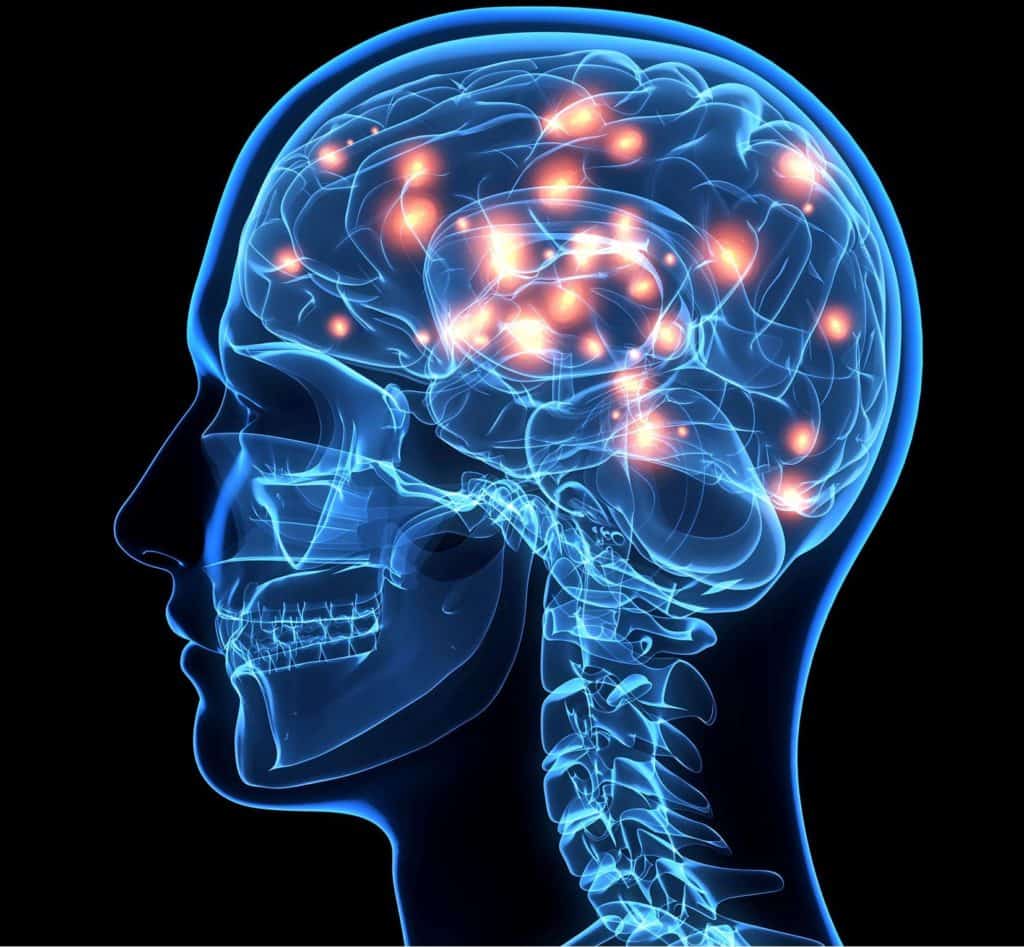
The Science of the Irrational
It is important to remember the idea of Matthew 7:1-3, which begins, “Judge not, lest ye be judged.” Many studies over the years have shown that when people are afraid they tend to become more conservative. There are significant differences in the brains of conservative people in comparison with liberal people. These differences show on brain scans. The right amygdalas is the part of the brain that processes fear. This section of the brain has been shown to be larger and more active in people that self-identify as conservative than in people that self-identify as liberal. That translates into more anxiety and a need to feel secure and safe.
In addition to being hardwired to seek comforting, familiar thoughts and people, conservative folks are also prevented from changing their inherent and learned beliefs by other natural phenomenon in the human brain. Confirmation bias, for example, means that the human mind unconsciously seeks out data that confirm what it already believes to be true, interprets data in a way to confirm its biases, and automatically rejects data that does not conform to that model.
One barrier to adaptation is that the mind is biased against sources of information that contradict its predispositions. One’s mind judges a qualified professor to be unreliable if that professor does not share one’s deeply held beliefs. Another obstacle to advancement when presented with new facts is the backfire effect. This occurs when new information causes humiliation or other negative emotions concerning one’s identity or worldview, such as one’s religious affiliation. The backfire effect explains why arguing rarely changes minds.
So, if a mind is motivated by a feeling of security that is holding off a sense of fear, and is also biased in what new information it can accept, and is suspicious of information from dissimilar sources, and is hurt by unwelcome news, really what chance does it have to learn and accept new knowledge? The mind must be trained in logic and scientific method; one must be consciously willing to learn; to be patient while expecting to repeatedly fail in the process of accomplishing a goal, especially the aim of learning; and to improve one’s worldview as a matter of lifestyle. It is important that children be educated this way and I am convinced that a better future depends on this kind of education.

A Scientific Christianity
Liberal Christianity has been promoting skepticism and removing superstition from tradition for five hundred years. This dawn of reason, beginning with the Renaissance, was also the birth of modern science. The movement has been graced with such leaders as the Humanist Erasmus; Deists like Denis Diderot, Adam Smith, Benjamin Franklin and Abraham Lincoln; and thinkers like Søren Kierkegaard and Dr. Martin Luther King, Jr. Being a liberal Christian means learning to prioritize reason and science over literal interpretation of scripture. This does not “water down” one’s religious piety, rather, it lifts one from base assumptions to loftier, nobler understanding.
List of Liberal Christian Influencers
Christianity is the religion of my ancestors for at least the last thousand years. It was a major factor in the shaping of Western civilization and world history. Its expressions in philosophy, art, music, literature, theatre, architecture and other aspects of my culture make the study of Christianity an essential part of my education. Part of me is fulfilled by helping to preserve the traditions of the church where I feel most at home.
The Episcopal Church maintains two liturgies for regular services. The parish church normally celebrates both every Sunday, the conservative one, Rite I, early in the morning, and the liberal one, Rite II, afterward, when most families come. The first service uses traditional language, prayers and the old hymnal while the Rite II service includes modernized language and a lot of newer music. Rite I will always be there to keep us rooted and Rite II will be consistently modernized to reflect the predilections of the majority.
I personally prefer the Rite I. As one who does not interpret scripture literally, does that mean that I find it to be meaningless? Certainly not. Do I think the Apostles Creed (used at baptism) or Nicene Creed (used at communion) is outdated? Of course not. The Creeds are and always have been statements of basic Christian belief and they inform the Christian ethos perfectly. If the Church produces new Creeds to explain Christian belief beyond the literal, I would not be unhappy with it, but I am not necessarily advocating for such updates. Anyway, such changes would not be appropriate for Rite I. Nothing needs to change.

Gary Bridgman for St. Mary’s, 1998
Even the most outspoken atheist of our time, Richard Dawkins (born 1941), an evolutionary biologist who served as the University of Oxford’s Professor for Public Understanding of Science for thirteen years, has called himself a cultural Christian and cultural Anglican. Dawkins has praised Jesus for his ethics in his book The God Delusion, while arguing against the illogical aspects of theistic belief.
The retired Episcopalian bishop of Newark, New Jersey, John Shelby Spong (born 1931) had many of the same criticisms of traditional Christian beliefs as his atheist and agnostic friends, but he refused to give up his Christian faith or worship traditions. Spong holds that reason and science have raised us above belief in the supernatural.
Spong has been an outspoken proponent of progressive Christianity and has, of course, received much criticism from those who believe, confused by instinct and emotion, that a primitive belief in the supernatural is essential to Christian institutions. I expect to collect the same criticisms around my own laying out of the facts, but I will continue to learn and to teach, and I forecast a future society where all superstitions are obsolete.
There is a public debate today over whether religion is compatible with science. One side makes the claim that faith answers moral and spiritual questions that are not physical, and therefore outside the realm of science, which is rightly human knowledge. The other side argues that reason and science can, indeed, inform a holistic and moral secular humanist lifestyle, and that faith in something without evidence is directly opposed to the scientific worldview. I tend to agree with the latter, but I do not agree that religion ought to therefore be discarded. I am currently writing a blog article about the relative benefits and harms of religion. My research is showing that religion possesses several important benefits that the irreligious could learn from and emulate for their own interests.
Christianity is entirely compatible with science if and only if the supernatural and moral elements of the religion are understood for what they are. It may be perceived as cherry-picking, but if we are going to benefit from religious imagery at all, we must build upon ancient foundations and discard what is no longer viable. This is preferable to just throwing out the baby with the bathwater and forging a brand new culture without connections to the past. That said, it is important that reform really does constantly attempt to keep up with current understanding, or else our traditions will do more harm than good.

Waxing Philosophical
In Moses’ day, and when Jesus lived, human beings were very ignorant, superstitious, fearful and impressionable, and thus were manipulated by ideas, words, actions and appearances that do not impress civilized people. More advanced ideas, words and media affect modern man in the same way. This is the science of motivation and the art of marketing. It is utilized in politics, trade, and advertisement to influence the individual, special interest groups and entire nations. Each of us must take responsibility for ourselves and do research on every claim, find its sources and use critical thinking and other resources to judge the truth of what we are told.
It makes sense to doubt that scripture, a man-made creation, was factually accurate in its claims of supernatural phenomena. We know this from critical thinking and science. The four gospels sometimes contradict one another about the facts even of the most important events of their subject matter, like who found the empty tomb and met Jesus in the garden. There is no evidence for a supernatural origin of sin, the supernatural power of Jesus’ sacrifice, or the bodily resurrection of Jesus and the Jews in the local cemetery. Nor need there be. Meaning in religion is not derived from its academic or scientific significance. Its value lies in what it represents and its influence on the psyche.
Blind faith in the truth of any legend is naïve; but faith in the Holy Trinity as the One, the Law and the Good, is one way to spiritual fulfilment. Faith, along with a continual and thorough study of religion, regular deep meditation, and charitable living, is a holistic way of life. None of the story of Jesus has to be factual in order to be meaningful. Christian tradition and community is so much more than the debate over these facts.
Jesus taught his disciples the Mysteries, but the Kingdom of God he taught to the people only in parables (Matthew 13:3-53, Mark 4:2-34, Luke 8:4-18). “And he said unto them, Unto you it is given to know the mystery of the kingdom of God: but unto them that are without, all these things are done in parables.” (Mark 4:11).
There is more to the Christ than the incarnation of Jesus ben Joseph. Jesus was not a political king, but a spiritual king. The Jews believed, far before Christ and the Christians, that a Savior would come to teach men to live together in an ideal society. Jesus taught that the Lord would return to govern this society. This is an excellent hope or ideal to manifest in art, music and literature, whether or not it is to ever happen in reality.
Not all Christians are righteous, nor all nonbelievers wicked. Some of us follow Jesus Christ’s and other philosophies, religions, governments and laws, in part to teach the calm and loving and wise way of life. The Christ is not a man, but a “spirit,” that is, the Perfect Man is not an actual man, but an ideal person after which people might live. The Jesus we know is a character written in Scripture and someone we experience “in spirit” and not in the flesh. He died in the hope that humanity would follow his example of love, mercy, community and prayer.
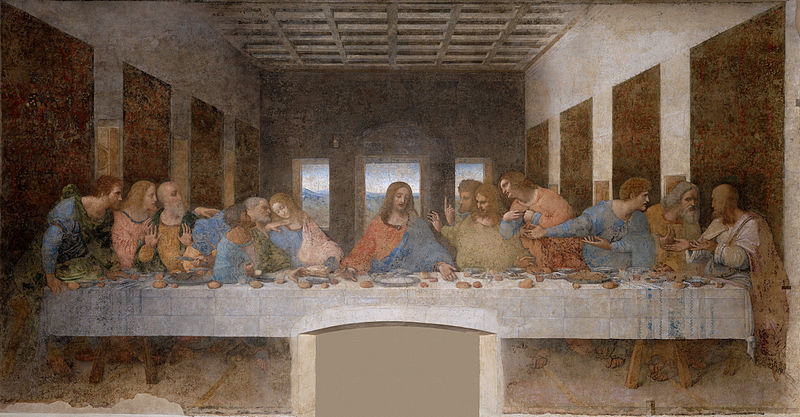
The Mystery
“God,” or the Absolute, is never known. True God is a formless and nameless Mystery. Whatever your religious affiliation, I highly recommend committing some time to research the religion of your ancestors, and find your own connection with that tradition. Even if it is just to make a single visit to a temple or a ceremony. If you choose to practice a religion, attending holiday ceremonies or committing to a regular daily, weekly or monthly schedule, it is crucial to realize that a life of superficial attendance is wasted time. Participation or solitary meditation on a deeper level is more fulfilling than just going through the motions.
Following in the footsteps of Jesus Christ, Christians value humanist virtues such as love, forgiveness, compassion and charity. Meditation and prayer were a central part of the teachings of Jesus. Christians down through the ages have developed many traditions but it is helpful to always return to the specific practical direction that was recorded as coming from the mouth of Jesus, himself. Jesus’ instruction for prayer is in Matthew 6:
5 And when thou prayest, thou shalt not be as the hypocrites are: for they love to pray standing in the synagogues and in the corners of the streets, that they may be seen of men. Verily I say unto you, They have their reward.
6 But thou, when thou prayest, enter into thy closet, and when thou hast shut thy door, pray to thy Father which is in secret; and thy Father which seeth in secret shall reward thee openly.
7 But when ye pray, use not vain repetitions, as the heathen do: for they think that they shall be heard for their much speaking.
8 Be not ye therefore like unto them: for your Father knoweth what things ye have need of, before ye ask him.
9 After this manner therefore pray ye: Our Father which art in heaven, Hallowed be thy name.
10 Thy kingdom come, Thy will be done in earth, as it is in heaven.
11 Give us this day our daily bread.
12 And forgive us our debts, as we forgive our debtors.
13 And lead us not into temptation, but deliver us from evil: For thine is the kingdom, and the power, and the glory, forever. Amen.
Read The Christian Journey Part I: The Body of Christ



